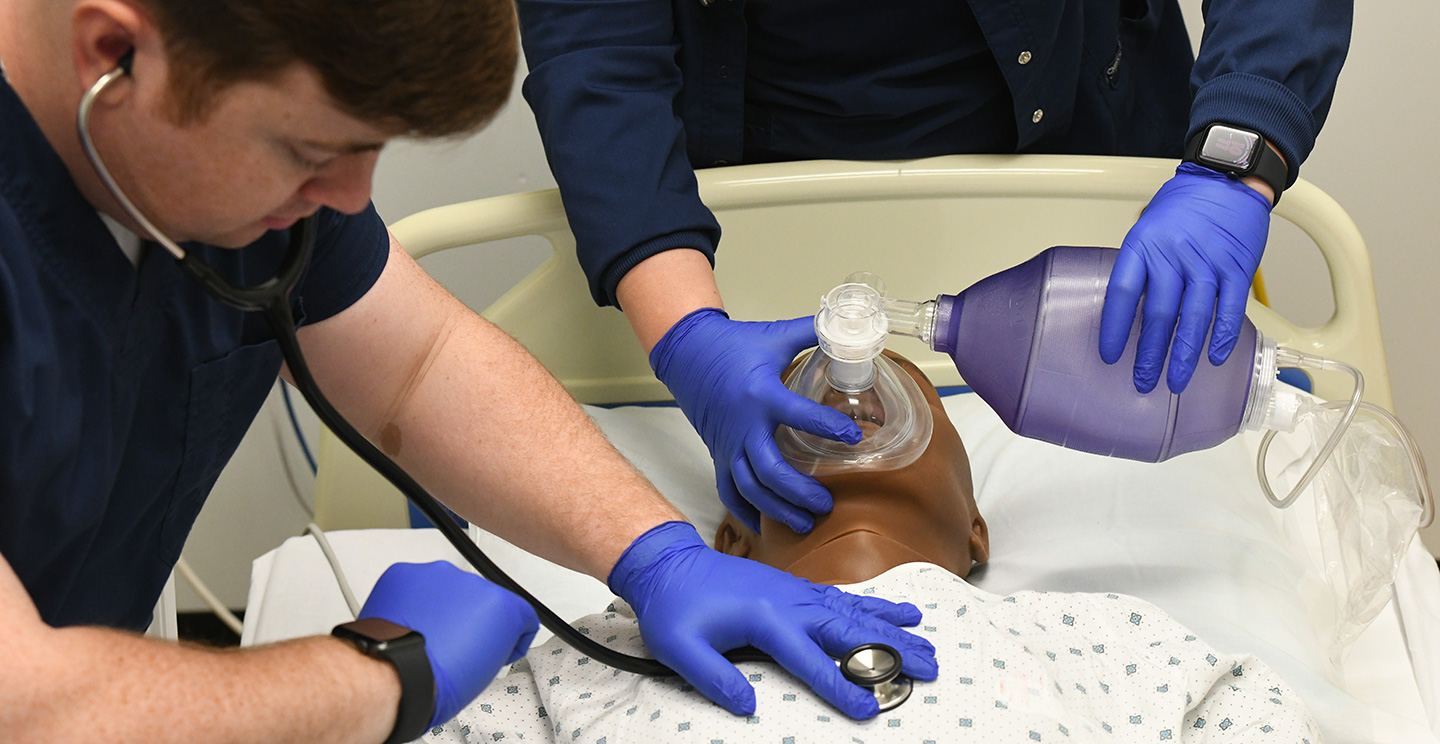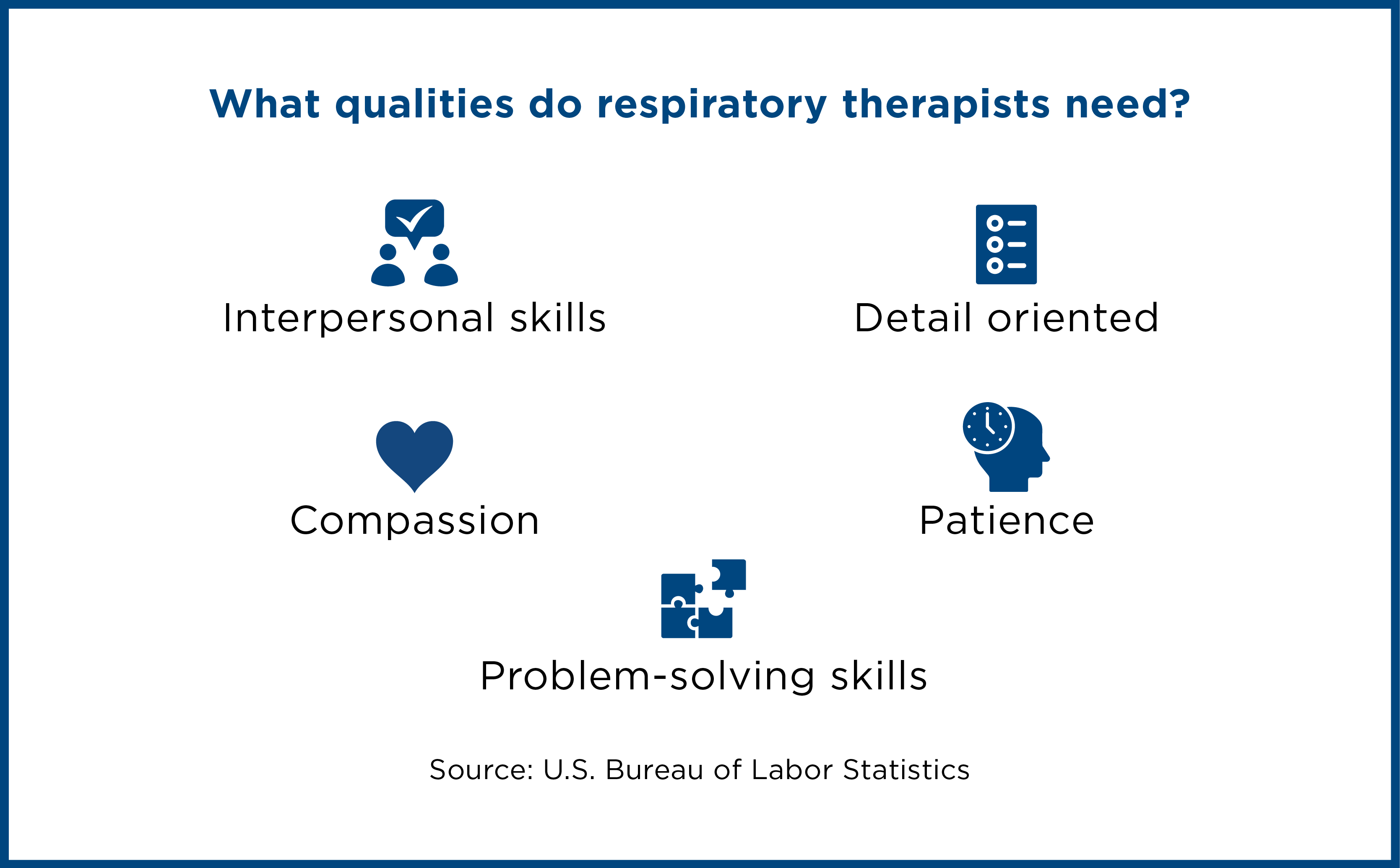Respiratory Care (Pre)

Why study Pre-Respiratory Care?
Respiratory therapists care for people with breathing difficulty. Under the direction of a physician, respiratory therapists treat a wide range of patient populations, from infants to the elderly. They administer medications, manage breathing treatments, and monitor ventilators. If you are passionate about helping others and have a desire to work in the healthcare industry, becoming a respiratory therapist may be for you.
Why study Pre-Respiratory Care at AU?
As a student in the Pre-Respiratory Care program at Aurora University, you will major in Health Science, acquiring the knowledge and skills necessary to be successful in the ever-changing field of health care. You will also enroll in the Pre-Respiratory Care program, which offers a curated collection of prerequisite courses necessary to be accepted into a respiratory therapist graduate program.
To help you navigate your academic career and prepare for an MS in Respiratory Care, AU offers one-on-one guidance with our own Pre-Medical Professions Advisor C.J. Chen. A longtime health science professor at AU, Chen is an expert in the application process for health professional schools.
At AU, you will also have an opportunity to participate in research, engage in job shadowing, and meet expert practitioners in the field.
How much education is required to become a respiratory therapist?
While it is possible to work as a respiratory therapist with an associate's degree from an accredited respiratory therapy program, to advance in the field and gain access to a wider variety of employment and career opportunities, it is necessary to earn a bachelor's or master's degree in respiratory therapy. Earning a master's degree can also qualify respiratory therapists for a variety of roles, such as disease manager, case manager, clinical specialist, formal educator, and researcher.
Before you can get a job as a respiratory therapist, you will need to become licensed by earning a certification through the National Board of Respiratory Care. The following NBCR credentials are considered to be the standards for respiratory therapist licensure:
- Certified Respiratory Therapist (CRT)
- Registered Respiratory Therapist (RRT)
Qualified Pre-Respiratory Care students can benefit from AU’s agreement with Rush University's College of Health Sciences, which is the only institution in Illinois to offer a master's degree for respiratory therapists. Please visit our academic affiliations page to learn more.
2022 annual median salary for respiratory therapists
2022-2032 projected job growth rate
Source: U.S. Bureau of Labor Statistics.

- Anatomy and Physiology I
- Anatomy and Physiology II
- General Biology I
- General Chemistry I
- Microbiology
- Physics I
- Psychology
- Statistics
- AU Science Organization
- Aurora University HOSA - Future Health Professionals
- Mu Sigma Pi: Mind. Body. Spirit.
Prepare for your future
Career opportunities
Respiratory therapists work in a variety of settings, including:
- Hospitals, clinics, and physicians’ offices
- Critical care units and transport
- Diagnostic laboratories, and sleep centers
- Colleges, universities, and research facilities